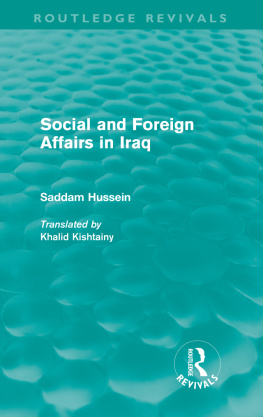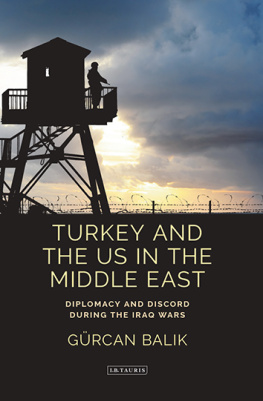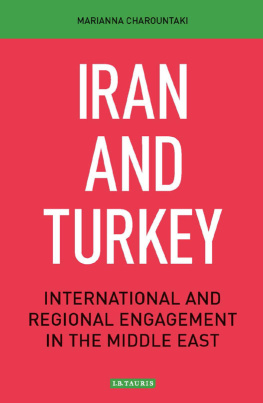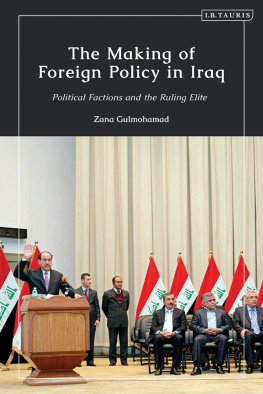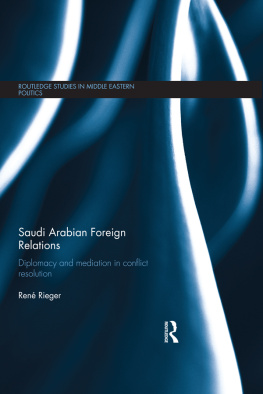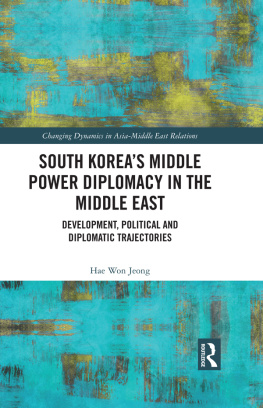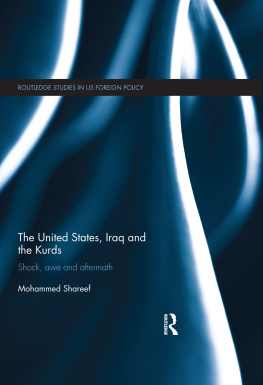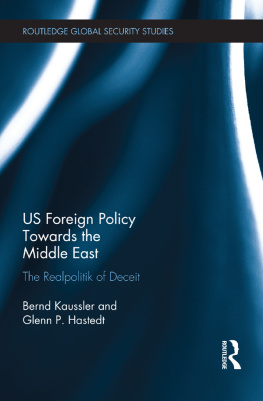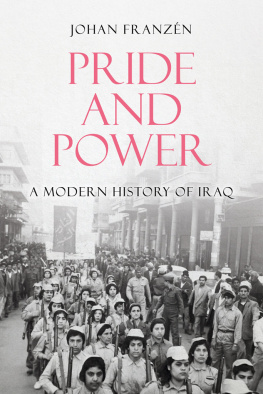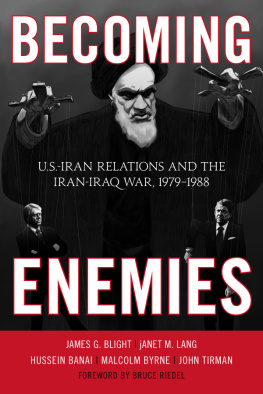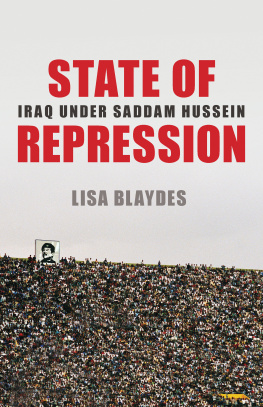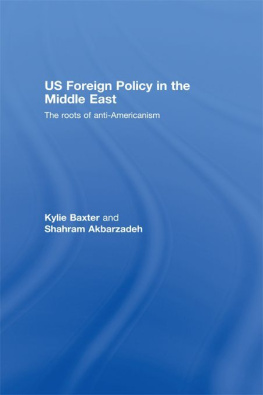First published in 1979
by Croom Helm Ltd
This edition first published in 2010
by Routledge
2 Park Square, Milton Park, Abingdon, Oxon, OX14 4RN
Simultaneously published in the USA and Canada
by Routledge
270 Madison Avenue, New York, NY 10016
Routledge is an imprint of the Taylor & Francis Group, an informa business
1979 Saddam Hussein
All rights reserved. No part of this book may be reprinted or reproduced or utilised in any form or by any electronic, mechanical, or other means, now known or hereafter invented, including photocopying and recording, or in any information storage or retrieval system, without permission in writing from the publishers.
Publisher's Note
The publisher has gone to great lengths to ensure the quality of this reprint but points out that some imperfections in the original copies may be apparent.
Disclaimer
The publisher has made every effort to trace copyright holders and welcomes correspondence from those they have been unable to contact.
ISBN 13: 978-0-415-56240-9 (hbk)
ISBN 13: 978-0-203-09252-1 (ebk)
ISBN 10: 0-415-56240-6 (hbk)
ISBN 10: 0-203-09252-X (ebk)
Half way through the present collection of speeches, I had to stop and dwell for a while on a very intriguing passage. This will be quoted presently, but just bear with me for a little.
One of the key words in the political vocabulary of the Arab world is nidhal which is widely accepted to mean 'struggle'. There is nothing exceptional about the use of 'struggle' in the radical or even the popular literature of any nation, at least not since the second half of the nineteenth century. Bracketed with 'class...' or otherwise, it entered the Arab world together with revolution, exploitation, etc., and helped to revitalise some good old Arabic root-words. Nothing, however, has achieved the same pre-eminence as that of nidhal , and for a very good reason.
The Arab nation was awakened in the nineteenth century and brought into our world like a child that is not only haemophiliac but burdened with a Sisyphus' stone to carry every day to the top of the hill only to find it next day where it was before. The Arabs had first to rid themselves of one of the most despicable foreign rules, namely the late Ottoman Government. No sooner was that achieved than they found themselves under the colonial rule of Europe. This was replaced by a series of corrupt or incompetent dictatorships.
In Palestine they were left with the extended struggle against Zionism. With Ancient Egypt and Mesopotamia in mind, the Arabs are also left with the rich legacy of some ten thousand years of struggle on one side or the other. To add even more weight to their tasks, they embarked on establishing socialism.
Nidhal is therefore the one political term which is truly at home in the Arab world and the title of munadhil is the most that the struggler can expect as a reward. He is not the activist of Eastern Europe, the militant of British trade unionism, or the fighter of the resistance movement. He is simply the Arab struggler and it also simply means that the two words must go together just like gum Arabic and Arabic numerals.
But the idea of nidhal has a longer history than our twentieth century. It has, after all, its mystic dimension in the Islamic concept of the religious struggle jihad. The mujahidin are not simply the fanatical warriors known in the political folklore of Europe. The fight and martyrdom for the sake of faith, according to the teaching of the Sufi thinkers is only the lesser struggle ( al-jihad al-asghar ). The true struggle, the greater struggle ( al-jihad al-akbar ) is the inner struggle against one's own lusts and failings.
The observance of the jihad is so often discussed in Islam that it almost stands at par with the duties of prayers and fasting.
Let those then who fight on the path of God, who exchange this present life for that which is to come; for whoever fighteth on God's path, whether he be slain or conquer, we will in the end give him a great reward
said the Quran. A mass of tradition and codes of conduct evolved out of the numerous Quranic verses and sayings of the Prophet Muhammad on this subject, so much so that entire chapters were given in both Sabih al-Bukhari and Sahib Muslim to this subject under the heading of Bab al-Jihad.
Whether Muslims or Christians, the Arab nationalists could not escape the impact of the jihad and its morality. Indeed in many parts of the Arab world, notably in Palestine and Algeria, the armed fighters called themselves mujahidin and preferred to look at their struggle as a continuation of the great Islamic jihad. A great deal of the dedication, self-denial, abstinence and stoicism professed by, and expected of, the Arab strugglers may owe its origin to the concept of the greater struggle against worldly temptations. 'Guarding the frontiers of Islam for even one day', said the Prophet, 'is worth more than the whole world and all that is in it.'
This spiritual legacy has been refuelled with the aspirations of socialism and the sacrifices it expects from the people as they march towards the new millennium. Of course, not all Arab strugglers, whether Ba'thists, socialists or nationalists, come anywhere near this prototype of the self-giving struggler. Recognising this fact of life, Saddam Hussein was quick to bring it into focus in his counsel to the women of Iraq:
The title of 'struggler', dear Sisters, is not a small matter. It is not anyone in any society, not anyone in any stage of social development who can arrogate to himself the title of 'struggler'. Therefore, if the title of 'struggler' has a moral value with a distinctive and crucial weight in the evaluation of human beings and the political movements and parties to which they belong, it has to be earned. As 'struggler' is not a facile or ordinary title, it must involve extraordinary obligations in return.
In a poetic moment, Saddam Hussein went on to recall in tranquillity his emotional stance as he stood by the grave of the unknown warrior in Belgrade:

